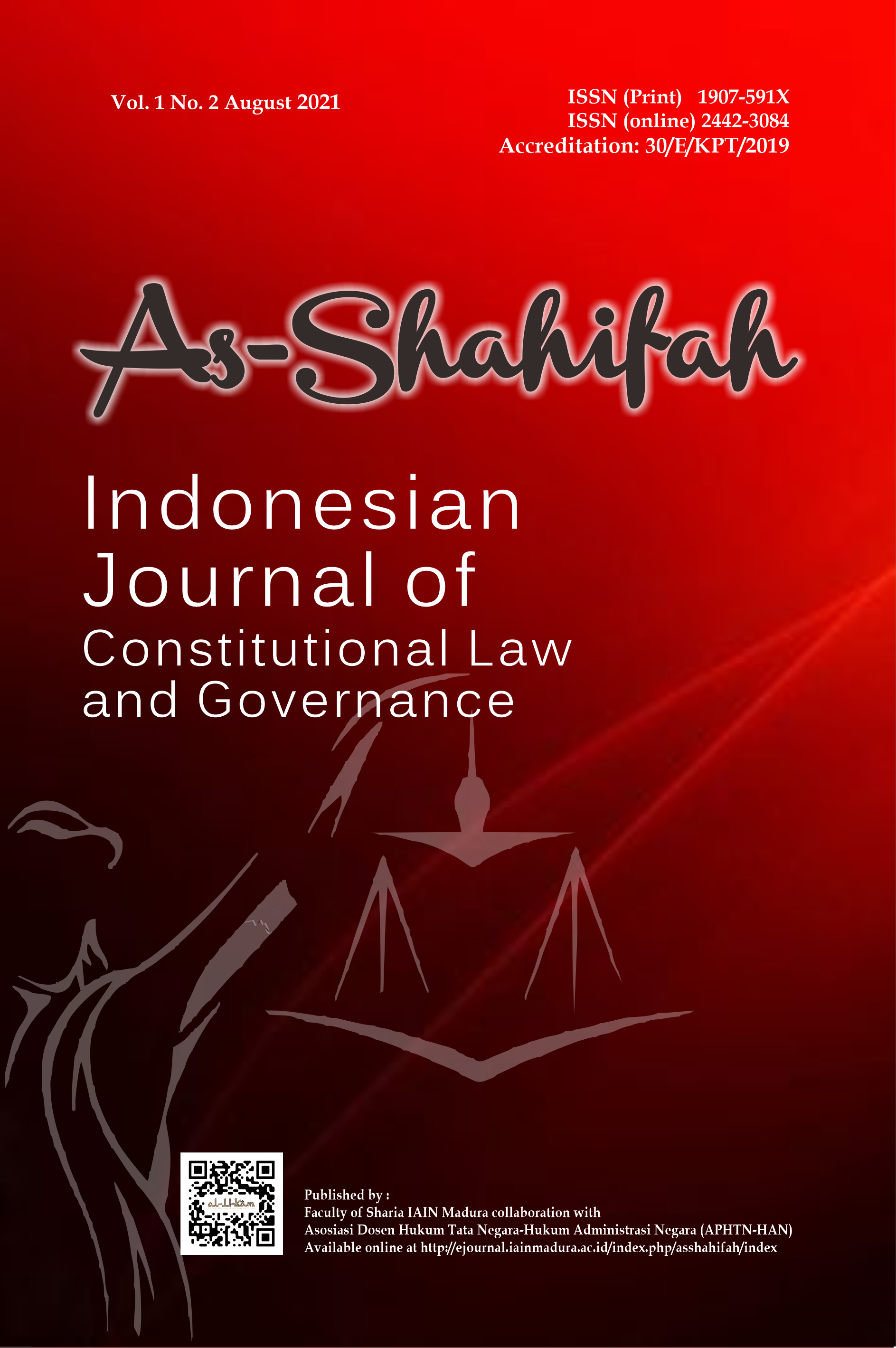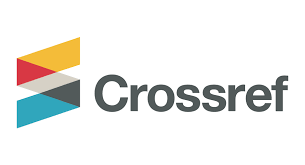Upaya Pengendalian Covid-19 Melalui Layanan Telemedicine Perspektif Permenkes Nomor 20 Tahun 2019
 Abstract views: 75
,
Abstract views: 75
,
 PDF downloads: 87
PDF downloads: 87
Abstract
This research is entitled "Efforts to control COVID-19 through Telemedicine Services Permenkes Permenkes Number 20 of 2019". The formulation of the problems that will be raised in this study are: first, how is the effectiveness of implementing telemedicine services in an effort to control the COVID-19 virus in Indonesia. Second, how does it affect the trend of the declining rate index for COVID-19 cases in Indonesia. And third, how is the Minister of Health number 20 of 2019 in providing regulations on the implementation of telemedicine services for isoman patients. In this study, a normative juridical approach was used, with research specifications that were descriptive analysis. The data used is secondary data obtained through literature study, and then analyzed qualitatively. The results of the study can be concluded that: first, that the implementation of telemedicine services for controlling cases of the COVID-19 virus in Indonesia is very effective. Telemedicine comes from the Greek, namely tele which means far and medical which means health services by health workers. According to the provisions in the Regulation of the Minister of Health of the Republic of Indonesia Number 20 of 2019 concerning the Implementation of Telemedicine Services Between Health Service Facilities Telemedicine is the provision of long-distance health services by health professionals using information and communication technology, including the exchange of information on diagnosis, treatment, prevention of disease and injury, research and evaluation, and continuing education of health care providers for the benefit of improving individual and community health.
Downloads
References
I Lubis and M. Safii, Smart Economy Kota Tangerang Selatan, Cetakan Pertama. Tangerang Selatan: Karya Abadi Mitra Indo, 2018
Jonaedi Efendi. Metode Penelitian Hukum: Normatif dan Empiris. Prenada Media, 2018.
K. Al Kharis, Pengembangan Telemedicine Dalam Mengatasi Aksesibilitas Pelayanan Kesehatan Di Masa Pandemi Covid-19 Primaya Hospital. Cikarang: Fakultas Ekonomi Bisnis dan Ilmu Sosial Universitas Pelita Bangsa.
P. Prawiroharjo, P. Pratama, and N. Librianty, “Layanan Telemedis di Indonesia: Keniscayaan, Risiko, dan Batasan Etika,” J. Etika Kedokt. Indones., vol. 3, no. 1, 2019
S. Siswati, Etika Dan Hukum Kesehatan Dalam Perspektif Undang-Undang Kesehatan, Edisi Pertama, Cetakan Kedua. Jakarta: Raja Grafindo Persada, 2015.
Soekanto, Soerjono, and Sri Mamudji. Penelitian Hukum Normatif: Suatu Tinjauan Singkat, Raja Grafindo Persada, Jakarta, 2003.
Publishing your paper with As-Shahifah : Journal of Constitutional Law and Governance means that the author or authors retain the copyright in the paper. As-Shahifah granted an exclusive non commercial reuse license by the author(s), but the author(s) are able to put the paper onto a website, distribute it to colleagues, give it to students, use it in your thesis etc, so long as the use is not directed at commercial advantage or toward private monetary gain. The author(s) can reuse the figures and tables and other information contained in their paper published by As-Shahifah in future papers or work without having to ask anyone for permission, provided that the figures, tables or other information that is included in the new paper or work properly references the published paper as the source of the figures, tables or other information, and the new paper or work is not direct at private monetary gain or commercial advantage.
As-Shahifah journal provides immediate open access to its content on the principle that making research freely available to the public supports a greater global exchange of knowledge. This journal is licensed under a Creative Commons Attribution-ShareAlike 4.0.This license lets others remix, tweak, and build upon your work non-commercially, and although their new works must also acknowledge & be non-commercial, they don’t have to license their derivative works on the same terms.
As-Shahifah journal Open Access articles are distributed under this Creative Commons Attribution-ShareAlike 4.0 International License (CC BY-SA). Articles can be read and shared for noncommercial purposes under the following conditions:
- BY: Attribution must be given to the original source (Attribution)
- SA: If you remix, transform, or build upon the material, you must distribute your contributions under the same license as the original.










